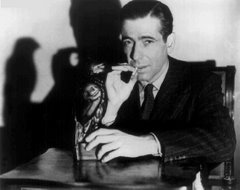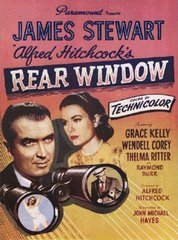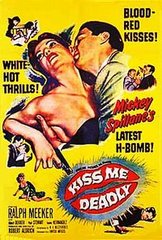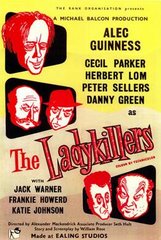 [N.B.: I will be discussing certain events in the film, including the end; the film doesn't have a very strong "narrative" however, so I hesitate to write that this post contains "spoilers" because there's really not much to spoil]
[N.B.: I will be discussing certain events in the film, including the end; the film doesn't have a very strong "narrative" however, so I hesitate to write that this post contains "spoilers" because there's really not much to spoil] Right in the middle of Milos Forman's Black Peter (1963) there's an extended sequence at a dance where we spend the majority of our time observing two losers as they try to pick up dates. Our main character, Peter, pops up occasionally, but in this particular sequence he seems like a cameo in his own film. There's a lot of awkward humor, and rock & roll, and it's all shot cinema verite-style, so it's perfect early Forman. What I especially loved about the sequence was the way Forman focuses (almost) exclusively on these two nerds (who were introduced in an earlier scene as dimwitted antagonists in a side plot) and slowly reveals their humanity. It's a long digression in a film that doesn't have much of a narrative to begin with, but it's got everything I love about Forman's Czech films: it's hilarious, true, unpredictable, and ultimately, humanizing. Forman shows us his characters' weaknesses, not just to ridicule them, but to humanize them. He enjoys making fun of the characters but he's never cruel about it.
Right in the middle of Milos Forman's Black Peter (1963) there's an extended sequence at a dance where we spend the majority of our time observing two losers as they try to pick up dates. Our main character, Peter, pops up occasionally, but in this particular sequence he seems like a cameo in his own film. There's a lot of awkward humor, and rock & roll, and it's all shot cinema verite-style, so it's perfect early Forman. What I especially loved about the sequence was the way Forman focuses (almost) exclusively on these two nerds (who were introduced in an earlier scene as dimwitted antagonists in a side plot) and slowly reveals their humanity. It's a long digression in a film that doesn't have much of a narrative to begin with, but it's got everything I love about Forman's Czech films: it's hilarious, true, unpredictable, and ultimately, humanizing. Forman shows us his characters' weaknesses, not just to ridicule them, but to humanize them. He enjoys making fun of the characters but he's never cruel about it. It's not that Forman drops his dark humor -- he continues to ridicule the characters for their sad-sackhood and social awkwardness. But he doesn't let the audience get away with easy laughs either; he forces us to recognize ourselves in these characters, to see that we could be the butt of the joke just as easily if a camera were around to document all the embarrassing and painful moments of our own youth. Forman makes fun of his characters (and he can be brutal and black in his humor), but he always manages to give a moment -- a fleeting look, a line of dialogue, a small action -- that complicates things and makes the ridiculous character suddenly the saddest and most vulnerable. Fans of shows like The Office would find a lot to love in Forman's Czech films.
It's not that Forman drops his dark humor -- he continues to ridicule the characters for their sad-sackhood and social awkwardness. But he doesn't let the audience get away with easy laughs either; he forces us to recognize ourselves in these characters, to see that we could be the butt of the joke just as easily if a camera were around to document all the embarrassing and painful moments of our own youth. Forman makes fun of his characters (and he can be brutal and black in his humor), but he always manages to give a moment -- a fleeting look, a line of dialogue, a small action -- that complicates things and makes the ridiculous character suddenly the saddest and most vulnerable. Fans of shows like The Office would find a lot to love in Forman's Czech films.The dance sequence in Black Peter -- long and rambling, focused primarily on secondary characters, utilizing documentary-style techniques, diagetic use of popular music, etc. -- is a premiere example of Forman's early style. It's shot like a documentary, with the camera acting as observer, weaving in and out of the crowd as various characters try to find dates, get drinks, make jokes, and dance. We watch the drama unfold as if unscripted, as young people struggle (and often fail) to navigate their confusing social lives.
 Black Peter is a youth film, a film for and about people moving from adolescence to adulthood that captures all the quiet rebellion, awkwardness, mischief, confusion, and ambivalence that accompanies that age. Since I'm just coming out of (or still stuck in, depending on which day of the week it is...) that period of my life, Black Peter resonated deeply. I was Peter in so many ways -- ambivalent toward work and family, anxious about sexual and romantic relationships, lacking a "proper" direction in life. Peter can be shy and bumbling, or he can be mischievous and sarcastic, and he certainly can't behave with adults in the way adults expect him to behave. He's too individualistic, too bemused, too awkward and yet too rebellious to fit in with the world his father inhabits, or the world of his job, or the social world of his peers.
Black Peter is a youth film, a film for and about people moving from adolescence to adulthood that captures all the quiet rebellion, awkwardness, mischief, confusion, and ambivalence that accompanies that age. Since I'm just coming out of (or still stuck in, depending on which day of the week it is...) that period of my life, Black Peter resonated deeply. I was Peter in so many ways -- ambivalent toward work and family, anxious about sexual and romantic relationships, lacking a "proper" direction in life. Peter can be shy and bumbling, or he can be mischievous and sarcastic, and he certainly can't behave with adults in the way adults expect him to behave. He's too individualistic, too bemused, too awkward and yet too rebellious to fit in with the world his father inhabits, or the world of his job, or the social world of his peers.There's a hilarious scene at the beginning where Peter follows a man he suspects of shoplifting. Peter works at a grocery store where it's his job to spy on the customers and look for possible thieves (obvious parallels to Communism and the police state of course). The scene -- with Peter following the man for blocks, past shops and passersby, trying to confront him over the shoplifting, but like an inept Inspector Clouseau, unable to bring himself to even make eye contact with the man, all while the man casually ignores Peter -- is a cinematic metaphor for those uncomfortable, unsure attempts of young people to navigate an indifferent and seemingly more powerful adult world. Throughout the sequence the man has complete control despite the fact that he's the one being tailed; he's the adult and Peter is reduced to a boy who's merely playing at being a spy.
 I have to admit, the scene could be a metaphor for my own bumbling experiences with older people. I know that in a lot of my interactions with people several years older than myself, I'm still a "kid" and they're the "adults," and the power in these cases is firmly in the hands of the adults.
I have to admit, the scene could be a metaphor for my own bumbling experiences with older people. I know that in a lot of my interactions with people several years older than myself, I'm still a "kid" and they're the "adults," and the power in these cases is firmly in the hands of the adults.Black Peter explores this theme a lot, not just in work situations but also at home with Peter's parents, and even in the scenes with Peter and other young people. There's an unmistakable sense that Peter is different -- not necessarily smarter or better but certainly a square peg, unable or unwilling to fit himself into the roles people have assigned to him. An alternate title for the film is, in fact, Black Sheep. Peter's cynical humor, lackadaisical ambivalence, and the annoyed frustration that springs from his social awkwardness are all traits with which I identified (and I expect others my age or younger would respond to as well; I'm curious what the middle-aged or older response to the film might be...). And of course, the theme of individualism that runs throughout the film is a response to the conformity and restrictiveness (thanks to Soviet Communism) of Czech life in the '40s and '50s that was only beginning to thaw in the 1960s.
A small victory for Peter, and the individualism and youth he symbolizes, comes in the last scene as Peter must endure yet another lecture from his conformist father. As Peter sits and grows increasingly annoyed by his father's exhortations, suddenly the movie shifts into the absurd and the camera freeze frames on the father, freezing him in mid rant.

But this is not like the freeze frame in something like Truffaut's 400 Blows, where the frame stops and the film ends. Instead, it's only Peter's father who has been frozen; Peter himself continues to move in his own frame and sits dumbfounded as he witnesses his father's cinematic paralysis. In a bit of self-reflexivity, Forman freezes the film on the father but allows Peter to continue to move and "live" within his own frame, with Peter being fully aware that his father's frame has stopped.
 Whether by an act of God, or simply the joking act of some unseen director, Peter is left to shake his head, do a double take, and wonder. The viewer is left with a delightful, if often times dark, comedy about the trials of not quite fitting in.
Whether by an act of God, or simply the joking act of some unseen director, Peter is left to shake his head, do a double take, and wonder. The viewer is left with a delightful, if often times dark, comedy about the trials of not quite fitting in.As far as I know the film is only available in the U.S. from Facets Video in a lousy transfer with terrible subtitles; the subtitles are barely matched up with whoever is speaking and several lines of dialogue are simply not translated. As unfortunate as this is (especially since Forman's other two films from this period -- Loves of a Blonde and Fireman's Ball -- are both available from Criterion) Black Peter is still worth seeing; the awkward humor comes through despite the poor subtitling.



















2 comments:
Informative review and you've got me wanting to see this film. I love the screen caps you posted. I'm afraid that I'm only familiar with Forman's English language productions myself.
I look forward to your future posts about the Czech New Wave!
I hope you check it out! It's a lot of fun and very human. I can't stress enough how bad the subtitles are, you'll have to suffer through them, but the movie still works. I'd love to post more about Czech New Wave (and movies in general) but I'm just getting started in a new job and it's taking up all my time. Maybe in the weeks ahead I'll get around to Loves of a Blonde, Daisies, and Fireman's Ball (I've never seen Fireman's Ball, so I'm very excited about that).
Post a Comment